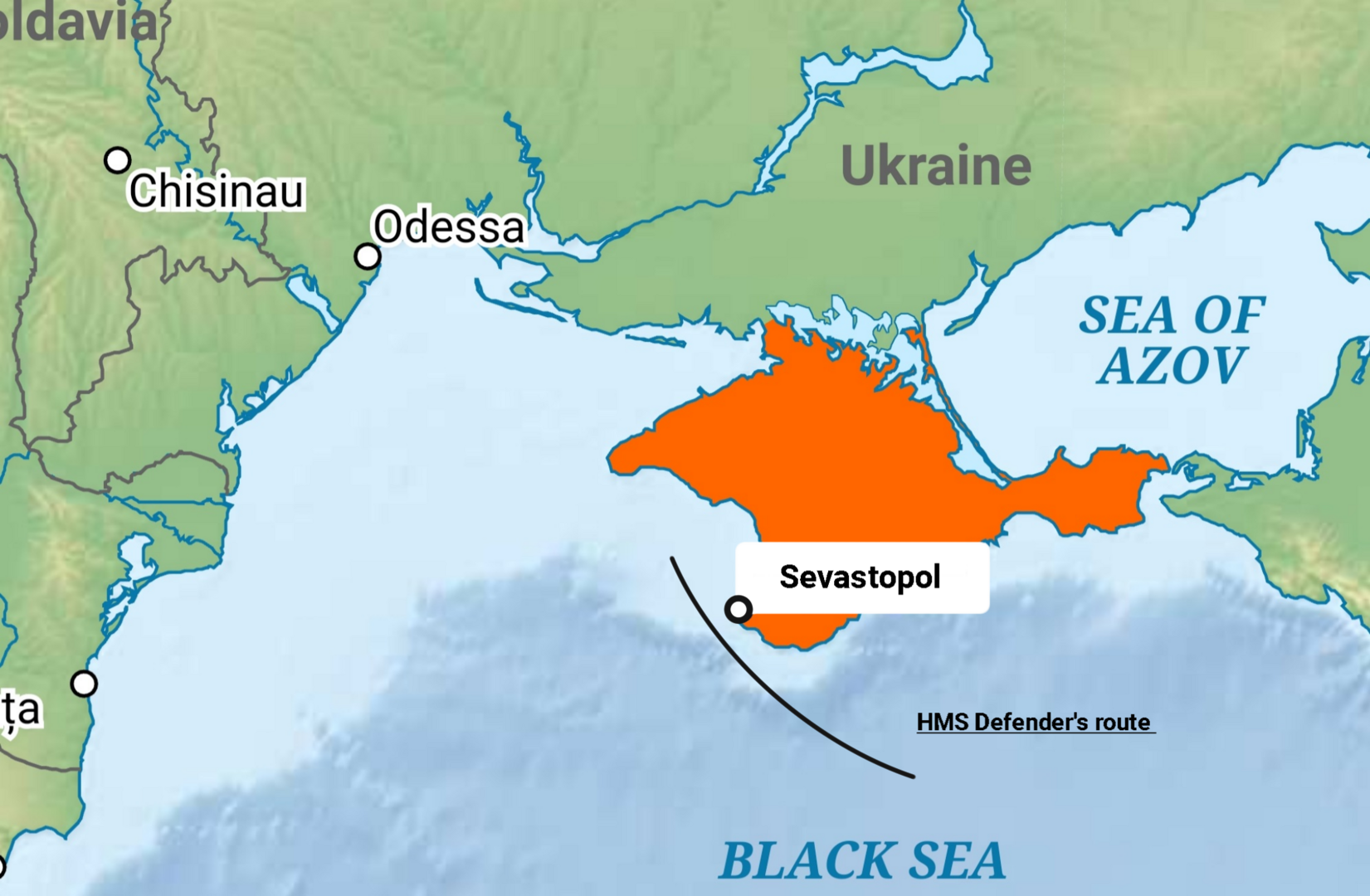“Let’s take back control” - the (in-)famous Brexit campaign slogan that came to be a grim commitment for its vivid advocate Boris Johnson and his government. The Conservatives campaigned for complete national sovereignty and now that it is granted, their objective is to revive an ever stronger Britain and what could be more fitting than to use the Royal Navy, once synonymous with British supremacy, to declare the return of a strong, affirmative and independent global actor?
Last Wednesday (23.06.) on its way from Odessa to Georgia, HMS Defender, a British warship, approached the Crimean peninsula. As the United Kingdom, in accordance with much of the western world, does not recognise Moscow’s annexation of Crimea, the destroyer sailed in what it considered to be Ukrainian waters. In contrast, the Russian armed forces registered the close by-pass as a violation of Russian territorial waters and dispatched up to 20 warplanes and a number of Coast Guard vessels to divert the Defender. As the situation did not escalate any further than a few warning shots - and even those are disputed by the British Ministry of Defense (MoD) - it would be easy to dismiss the fiasco as a trivial “game” between two (former) global powers, however, reviewed in its broader context the situation gains significance.

The naval confrontation took place notably on the same week as France and Germany proposed an EU-Russia summit to open a new phase of dialogue and cooperation. “We as the European Union must also seek direct contact with Russia and the Russian president” - Angela Merkel told the German Bundestag referring to the recent Biden-Putin summit. Seemingly London wanted to make it clear that while the EU might be willing to sit down with Putin - although many member states oppose the idea -, Her Majesty’s Government will not negotiate with a country that it considers to be a geopolitical aggressor. “The Royal Navy and the UK will always call out states that do not follow international order” Commander Owen, the captain of HMS Defender, told BBC and clarified that the ship deliberately sailed close to the Crimean coast to make a political statement. A gesture that “if Britain were in the EU, it would have been in a position to have warned against '' said Nigel Gould-Davies from the International Institute for Strategic Studies in London.
The HMS Defender’s deliberate intrusion into self-declared Russian waters can also be seen as a direct reaction to President Putin’s 2021 state of the nation address, in which he warned the West not to cross the metaphorical ‘red line’. Now, the Royal Navy made it clear that while the rest of the international community might allow Moscow to draw said ‘red line’ unilaterally, Britain will not. The importance of this statement is amplified by the fact that the UK opted to make its stance less than a week ahead of the annual Sea Breeze NATO maritime exercise that takes place along the Ukrainian coastline.
Finally, the choice of the ship itself is remarkable as well since the HMS Defender will shortly leave the Black Sea and participate in the UK’s new “forward-leaning” foreign and defence policy, conceptualized in the form of a British strike force on the South China Sea. There, much like the US 7th fleet, it will challenge China's arbitrary claims to international waters. Thus, the ship’s crossing over disputed Russian waters this Wednesday was both a trial and a proof-of-concept that sent a strong message to China.
To conclude, the HMS Defender’s deft move proves that the post-Brexit United Kingdom developed a distinct foreign policy ‘armed and guarded by the British fleet’ that it is dedicated to stand by with or without its allies’ support.
29.06.2021. Bálint Pongrácz
Image: EUSTRAT